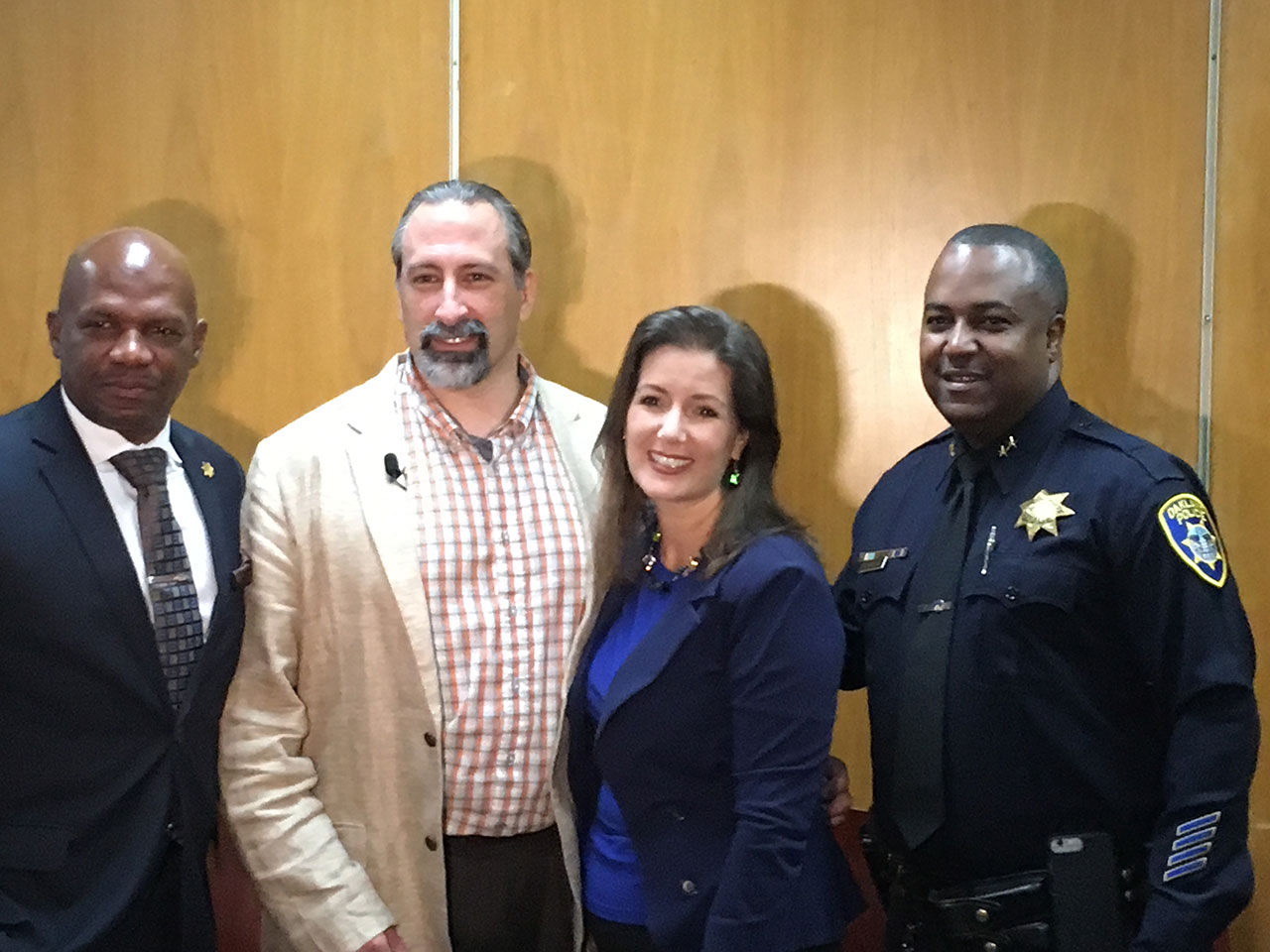Research Team
Crime and Justice Policy Lab, University of Pennsylvania
Institute for Policy Research, Northwestern University
University of Maryland
Northeastern University
Project Overview
Researchers at CJP have worked on several projects related to community violence prevention strategies. Our ongoing work in Oakland is based on several of these previous projects, notably Boston’s Operation Ceasefire focused deterrence project. Focused deterrence strategies seek to change offender behavior by understanding underlying crime‐producing dynamics and conditions that sustain recurring crime problems, and by implementing a blended strategy of community mobilization, social service actions, and law enforcement. In 2012, the Ceasefire Oakland Partnership was launched to bring the Ceasefire strategy to Oakland. The Oakland project has three primary goals:
- Reduce gang-related shootings and homicides
- Decrease recidivism and incarceration rates of individuals participating in the intervention
- Strengthen police-community relations
We have been working with the Ceasefire Oakland Partnership to study the effects of the program on community outcomes, and consider how successful elements of the program might be expanded to other sites. Our quasi-experimental evaluation findings suggest that the Oakland Ceasefire strategy was effective in reducing fatal and non-fatal shootings in the city. The Oakland Ceasefire strategy generated reductions in shootings in treated neighborhoods and by treated gangs relative to shootings in untreated neighborhoods and by untreated gangs, respectively. We continue to collect data to understand the effects of this strategy on individual recidivism and victimization as well as police-community relations.

